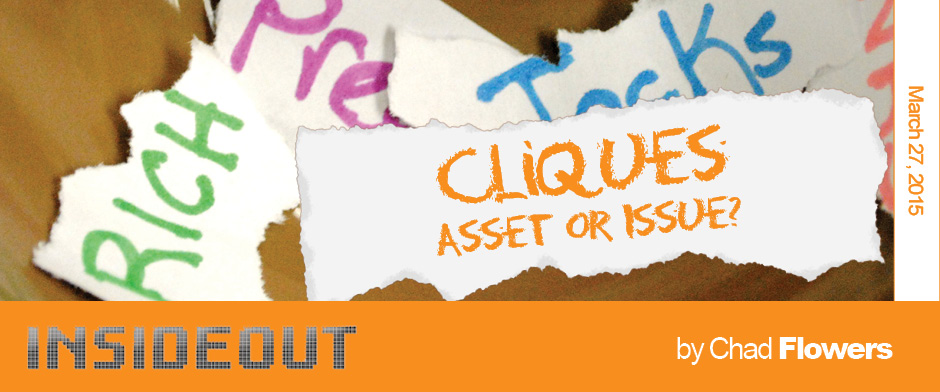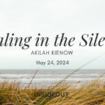Cliques: Asset or Issue?

They were in existence when your parents, grandparents, youth pastors, and pastors went to middle school and high school. The word itself tends to carry a negative connotation in the field of research and especially in youth-focused sermons. So what do social “cliques” have to do with student relationships? EVERYTHING! Cliques have been, are, and will continue to be a dominant and influential part of our lives, helping to shape what we become.
In Roger E. Hernandez’s book, Teens & Relationships, he describes how studies show students are likely to spend twice as much time with peers as with their parents. He explains cliques can be both good and bad. They can give teens a sense of security and community. Students who are excluded from cliques risk feeling depressed and resentful. Some students avoid cliques all together, desiring to define themselves as individuals rather than needing approval by their association with a particular group. However, the act of avoiding the association with cliques is still proof social cliques affect our development.
One student described the social cliques from his own high school: “there were the “punks” who wear all black; the “jocks” who play football and wear their jerseys on game day; the “preps” who stand out by their snobby attitudes and higher economic status; and finally the “nerds” who are known for their high intelligence and disinterest in the latest clothing trends. When I was a student in the 90s, they were called the “Gothics,” known by their dark-colored clothing and always wearing “Jeancos” (a 90s version of the 60s bell-bottoms). However, students today have a new name for them: emos. And although the dark-colored clothing preferences have gone unchanged, they now wear skinny-jeans. All high schools have them: preppies, sports jocks, emos, nerds, the popular crowd, and the rejects. They may change names from school to school, but they are definitely a normal part of adolescent development.
There seems to be two sides to the coin regarding cliques. The strength behind social cliques—positive or negative—is the peer pressure produced by them. Some researchers argue that cliques allow teenagers to form deep friendships. After all, a 2001 Gallup Youth Survey revealed that thirty-six percent of teens interviewed prefer spending evenings “visiting with friends.” Some studies also show peer pressure can be a positive influence when a student chooses to spend time with academically-oriented peers and obtains better grades. However, the opposite can also be true.
The negative effects of social cliques are more evident. Peer pressure can compel students to engage in at-risk behaviors such as drug and alcohol use, sexual activity, violence, and delinquency. When a student feels rejected from the social order, he or she is likely to become overly aggressive or extremely withdrawn. Patterns of passive aggression can set in. One of the most gruesome examples of students’ anger over rejection occurred on April 20, 1999. I, myself, was a sophomore in high school when two students, Dylan Klebold and Eric Harris, went on a murderous rampage at Columbine High School in Colorado. They viewed themselves as outcasts who needed revenge. I still remember the shock we felt even in our high school that fellow students could commit such horrid acts. The experiences of school shootings like Columbine and many since then emphatically express that the impact of acceptance or rejection by social cliques in the school setting cannot be overestimated.
Our social relationships during our teen years are a vital part of our development and identity. As we navigate the social cliques that surround us, whether we choose to associate with them or not, we must always remember the impact they have on our lives. Learning to pray for God’s direction in our lives never comes at a more crucial time than this!
Chad Flowers is married to his best friend and teammate, Mendy. He’s a daddy to two incredible little girls, Jadyn & Keira, and he lives in Mesquite, Texas where he has a private practice as a licensed professional counselor and serves as pastor of Emmanuel Pentecostal Church.









